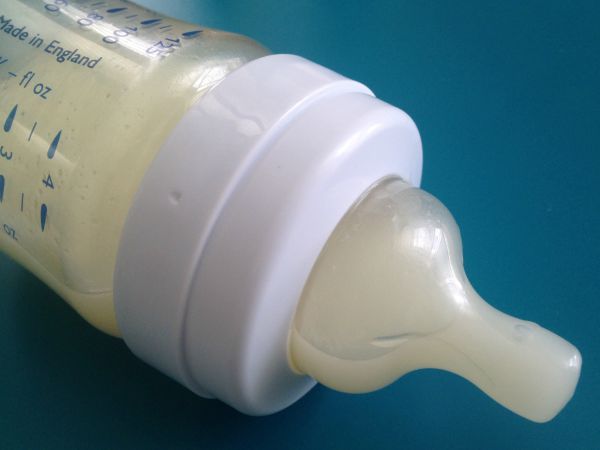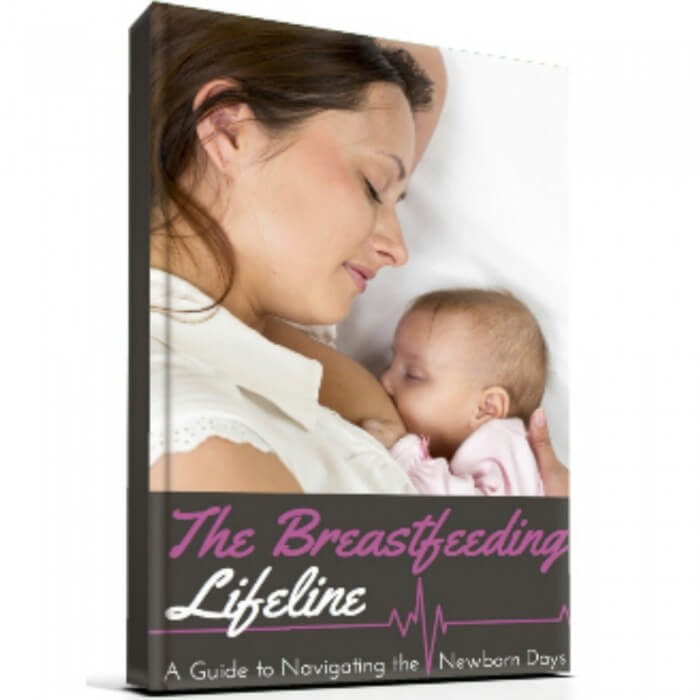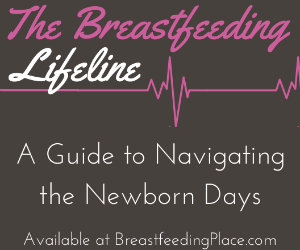(Today’s post is from Rebekah Hoffer, a former contributor for Breastfeeding Place and now author of Why Does My Breast Milk Taste Bad? She hopes that during this World Breastfeeding Week she can encourage and inform moms who may struggle with this issue.)
I thought my breastfed daughter was picky.
I thought she was stubborn.
I thought I had the wrong type of bottle or nipple. Perhaps we didn’t give her a bottle often enough or early enough.
Again and again my daughter refused to take a bottle while I was gone. I was extremely frustrated. What was I doing wrong?
And then I tasted the breast milk that was in her bottle. I was shocked. Nothing had prepared me for that moment. My breastfeeding class, lactation consultant, mom, and girlfriends had never warned me.
My breast milk tasted bad. No… not just bad. My breast milk tasted horrible.
I was devastated and instantly flooded with questions. Did all of my milk taste this way? Is there something wrong with me? Is there something wrong with my freezer? What if all of my frozen milk tastes like this? Oh my word. All that milk in my freezer! Is it all bad?
After hours and hours of research, I diagnosed myself with excess lipase activity. There was nothing wrong with the nutrition of my milk, but an overactive enzyme (lipase) was causing my expressed breast milk to develop a bad taste over time.
I didn’t discover that I had excess lipase activity until my daughter was 5 months old. By that time, I had 575 ounces of breast milk in my freezer and all of it tasted bad. I had spent hours and hours pumping breast milk and my daughter refused to drink it. It was gut wrenching.
My daughter will be turning 6 next month and her little brother is 3 years old. Now that I have years of experience dealing with excess lipase activity, I have a few things that I want every breastfeeding mother to know.

5 Things I Want You to Know About Excess Lipase Activity
1. It can happen to anyone. There hasn’t been any formal research to determine the cause of excess lipase activity. If you are a breastfeeding mother who pumps (even if it is just for the occasional babysitter), you could experience excess lipase activity.
2. Don’t wait. Test your milk right away. When you are ready to start your pumping routine, put a quarter ounce of breast milk in your refrigerator and taste it every couple of hours to see if the taste changes. If a week goes by with no significant changes, then you are in the clear. If you notice an offensive taste change, it is likely you have excess lipase activity.
3. You can still have a healthy breastfeeding relationship with excess lipase activity. You don’t have to stop nursing or pumping. It is possible to build a supply of frozen breast milk even if you have excess lipase activity.
4. You are not alone. I felt extremely isolated when I was searching for answers after I discovered my breast milk tasted bad. None of my friends or family had experienced this. Even my daughter’s doctor wasn’t sure what was going on. I don’t want another mother to feel as desperate for answers and support as I did, which is why I wrote an eBook dedicated to excess lipase activity.
In the book Why Does My Breast Milk Taste Bad? you will find:
- An explanation of excess lipase activity that you don’t need a medical degree to understand.
- Answers to 31 frequently-asked questions.
- Detailed instructions on how to test your breast milk for excess lipase activity.
- Step-by-step directions on how to stop your milk from developing a bad taste.
- 8 suggestions on what to do with all of the bad-tasting breast milk in your freezer.
- My personal story and what happened when my second child was born.
- Valuable information from Dr. Ruth Lawrence, the nation’s leading authority on breastfeeding.
- Support, encouragement, and the knowledge that you are not alone.
5. Awareness is crucial. Please help spread the word about excess lipase activity. Even if you don’t have this problem, someone in your social circle might benefit from this information.
Every breastfeeding mother who chooses to pump should test their milk for excess lipase activity.
Have you ever tasted your breast milk? Do you suspect that you could have excess lipase activity?
Rebekah Hoffer blogs at Simply Rebekah where she shares parenting advice from the perspective of a mom who knows she isn’t perfect. She also shares tips on natural living and money saving.








Speak Your Mind